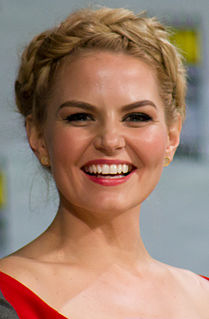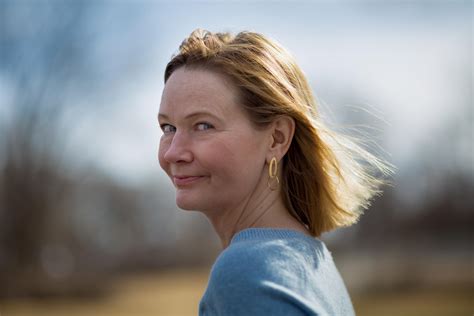A Quote by Esme Creed-Miles
'Hanna' has grown up in wilderness. It highlights humanness and animal-ness in humans. She has an interesting take on gender and love.
Quote Topics
Related Quotes
I think growing up, the assimilation of most cultural conventions typically encouraged by a heightened awareness of gender and sex encourages a sort of separation of the self. What's so special about 'Hanna' is that her upbringing has negated this indoctrination; she's almost absolved of the pressures of gender or gender itself.
I get my highlights touched up with Susan Henry at Shades in Beverly Hills. She developed hypo-allergenic hair color products with no ammonia because she's allergic to others; she's an incredible colorist. She does balayage instead of the foils, and I'll go and she will do my entire head of highlights in an hour.
The entire history of humanity is marked by a single inexorable movement - from animal instinct toward rational thought, from inborn behavior toward acquired knowledge. A half-grown panther abandoned in the wilderness will grow up to be a perfectly normal panther. But a half-grown child similarly abandoned will grow up into an unrecognizable savage, unfit for normal society. Yet there are those who insist the opposite: that we are creatures of instinct, like wolves.
We believe we're seeing, in other animals, a process, or an attribute, that isn't fundamentally different from what we see in humans, so it seems to us to be spurious to call them different things. Now there are aspects of human culture that we don't find in animals, and that's really interesting, but there are also probably aspects of animal cultures that we don't find in humans, and that's really interesting.
As Jeremy Bentham had asked about animals well over two hundred years ago, the question was not whether they could reason or talk, but could they suffer? And yet, somehow, it seemed to take more imagination for humans to identify with animal suffering than it did to conceive of space flight or cloning or nuclear fusion. Yes, she was a fanatic in the eyes of most of the country. . .Mostly, however, she just lacked patience for people who wouldn't accept her belief that humans inflicted needless agony on the animals around them, and they did so in numbers that were absolutely staggering.
To be commanded to love God at all, let alone in the wilderness, is like being commanded to be well when we are sick, to sing for joy when we are dying of thirst, to run when our legs are broken. But this is the first and great commandment nonetheless. Even in the wilderness - especially in the wilderness - you shall love him.

































